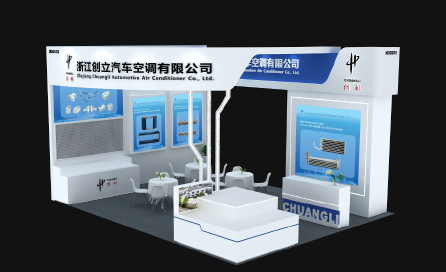Cleaning and Antibacterial Prevention Strategy for Automotive Air Conditioning
Summer car air conditioning cleaning and antibacterial strategy
In summer, it is also the season for frequent use of car air conditioning. It is necessary to do a cleaning project for the car air conditioning before frequent use to avoid air conditioning malfunctions, prevent the growth of bacteria and viruses inside the air conditioning, seriously harm the health of car owners, and affect normal use. Beautiful cars will recommend summer car air conditioning cleaning and anti bacterial strategies for car owners.
Car air conditioners are prone to accumulating bacteria
Car air conditioning evaporators, fans, etc. are in a closed and dark state for a long time, and the internal environment is hot and humid. Impurities, dust, bacteria, and viruses in the air enter the interior of the air conditioner and bind with condensate to block components such as the evaporator. Over time, a large amount of dirt, nicotine, mold, fungi, etc. have adhered.
This situation is mainly caused by the structural characteristics of the air conditioning system itself. The air conditioning system mainly uses fluorine or 134A as the medium, and achieves the purpose of refrigeration through the change of system pressure. It consists of an evaporator, expansion valve, compressor, blower, condenser, drying tank, and pipelines. When the air conditioning system is working normally, the evaporator operates in a cold environment and generates water when encountering relatively hot air from the outside. This is also the reason for designing the outlet pipe in the evaporator structure; The humid environment of the evaporator and ventilation ducts, as well as the surface dust, provide a breeding ground for mold and fungi.
Closed and narrow spaces are prone to inhaling pathogens
Fungi and fungi can quickly multiply into fungal and fungal clusters, producing a putrid odor of living organisms. These odors can mix with the air conditioning and contaminate the entire interior of the car, often causing discomfort for drivers and passengers. People with allergies may experience deeper sensations.
After a long winter and spring, when we start using car air conditioning again in summer, harmful bacteria will blow out from the air conditioning and be inhaled into the human body in the enclosed and narrow space of the car, leading to various symptoms of "car air conditioning disease"; Improving the air inside the car and improving the cooling efficiency of the air conditioning is something that every driver should pay attention to.
Mist cleaning of air conditioning to keep away bacteria
In summer, before using the air conditioner, it is recommended that the car owner clean the air conditioning pipeline and evaporation tank. The air conditioner cleaning methods on the market include foam type and spray type.
Foam type cleaning method is to spray foam type cleaning agent directly into the air conditioning pipeline and clean it by blowing foam to adhere to the dust. However, many dirt is difficult to completely adhere, and foam adhering to the pipe wall is very easy to adhere to the dust, forming secondary pollution.
The other spray type is the dismount free cleaning technology for automobile air conditioners, which sprays the liquid medicine onto the air conditioning pipes in the vehicle. The advantage of this method is that the liquid medicine can be evenly sprayed wherever the blower wind can blow, and the dust, oil dirt, mold and other pollutants adhered to the evaporator, filter, condenser, pipes and other components of the air conditioner can be quickly removed, so as to achieve the purpose of cleaning, sterilization and antibacterial, avoid secondary pollution, and form a protective film to inhibit mold regeneration. The important thing is to form a good habit of using and maintaining, and the combination of prevention and treatment is the best.
The Harm of Odor in Automotive Air Conditioning
And the odor of car air conditioning is not just unpleasant. Through a large number of experiments, it has been proven that water vapor adhering to the evaporator of air conditioning can produce at least three harmful molds to human health: Aspergillus, Aspergillus, and Penicillium. Although there are currently few complaints about car air conditioning around us, medical trials have shown that these fungi may pose a threat to the human body in seven aspects: causing headaches, fever, sudden sore throat, tonsil infection, asthma, flu symptoms, dermatitis, and difficult wound healing, among other adverse reactions.


 admin
admin 




